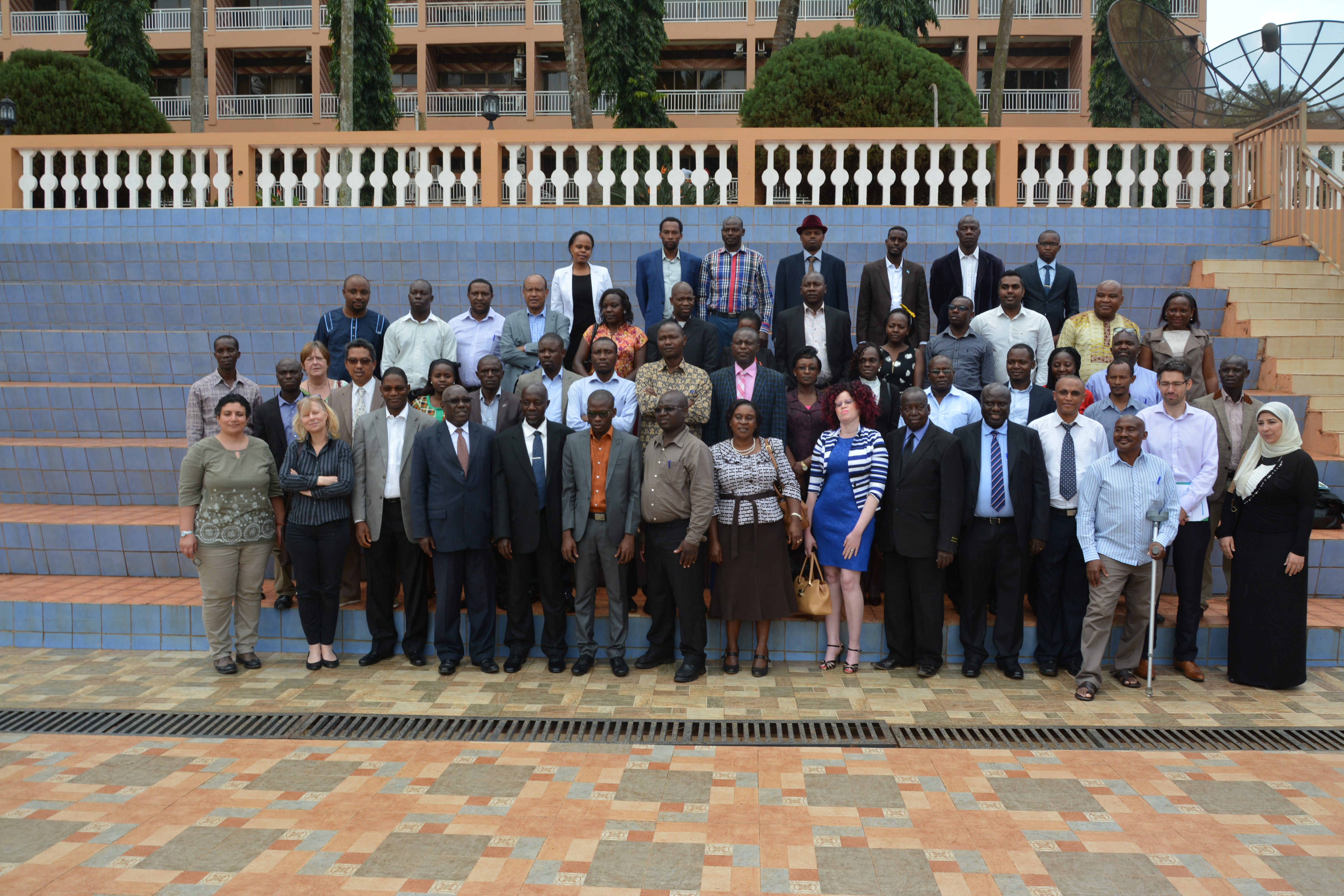The training is co-organized by African Network of Basin Organizations, Global Water Partnership (GWP), the Inter-governmental Authority on Development (IGAD), University of Dundee and Makerere University. The week long training has attracted over 50 water practitioners and professionals from RBOs and governments ( Foreign affairs ministries, ministries in charge of water affairs, legislators, water management agencies, etc.) who have a role in negotiating, drafting or reforming treaties and legislations (regulation, control), planning, decision-making on trans-boundary waters in Africa.
The training seeks to raise awareness and promote the value of international legal frameworks in fostering national, regional and international cooperation and facilitate good water governance through the strengthening of technical and institutional capacities of agencies and individuals that have the potential to influence and advise decision-makers on negotiation, adoption and implementation of legal frameworks for water management.
More specifically, it takes place at a time when there have been significant developments in international water law (IWL). However, major challenges remain as 90 percent of the African continent is covered by 64 trans-boundary river basins. Some of these river basins in Africa still lack any agreement; others do not include all riparian States; and others are not adequate to address the multiple contemporary challenges faced by States sharing trans-boundary waters. It is also being increasingly recognized that trans-boundary groundwater must be better factored into trans-boundary cooperative arrangements for water.
Therefore, the course is expected to help foster a shared understanding of law’s contribution to promoting trans-boundary water cooperation so that participants can strengthen the development and implementation of IWL irrespective of disciplines and backgrounds and ultimately create capacity in trans-boundary water management across the African continent.
The training will close on 12 June 2016 and it is hoped that at the end, participants will have an increased awareness of the importance of incorporating Integrated Water Resources Management (IWRM), ecosystem-based approaches, climate change and variability and gender perspectives into water-related treaty arrangements as a strategic approach to enhance water governance at the international level in order to ensure water security and peace in Africa.
